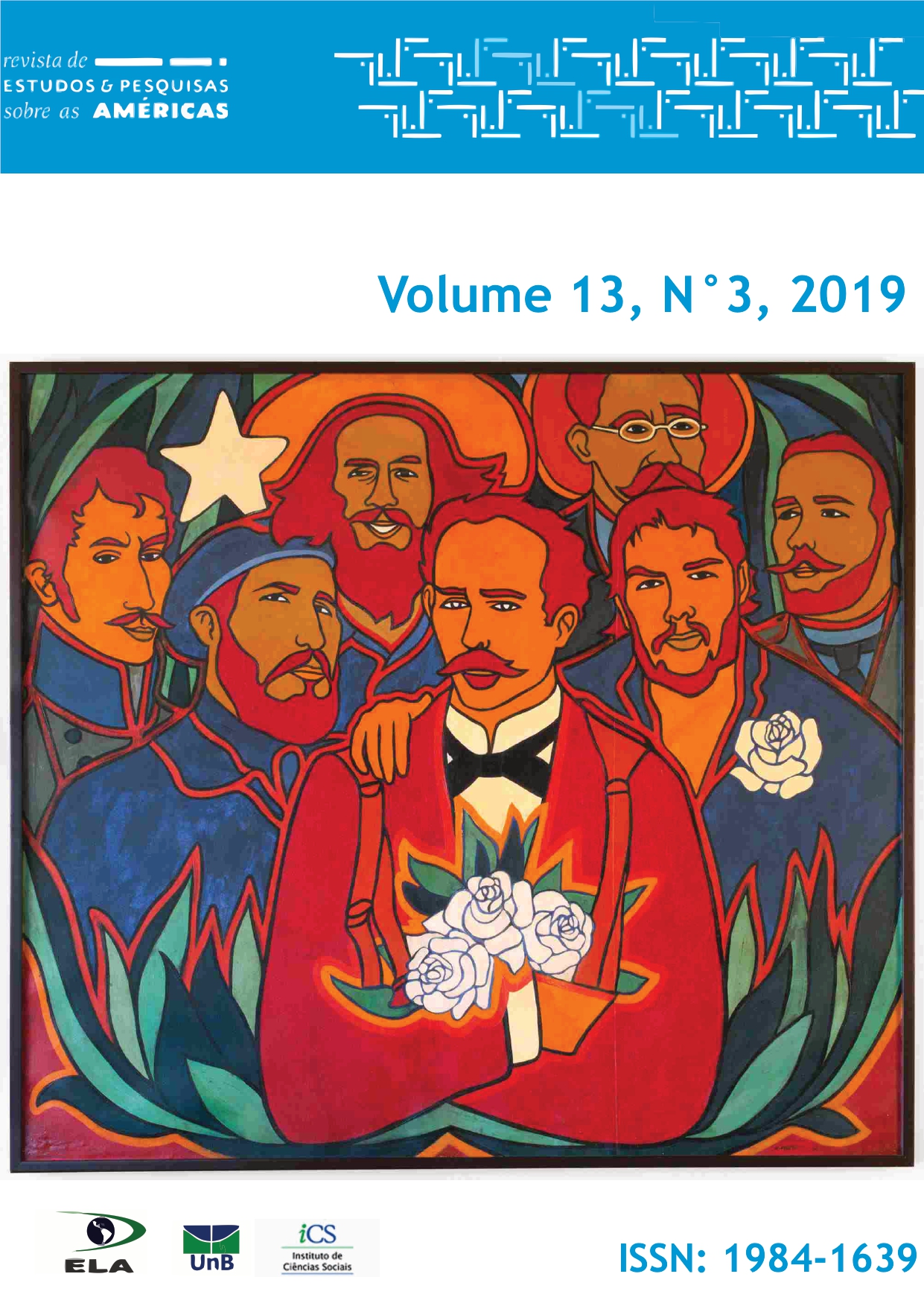Haiti: Internal Socio-Historical Aspects and Emigration
DOI:
https://doi.org/10.21057/10.21057/repamv13n3.2019.24646Keywords:
Haiti. Migration. Haitian RevolutionAbstract
Haiti, a state constitutionally founded in equality between blacks and whites, lives in daily life a cruel racial division between blacks and mulattoes, a complex relationship with foreigners, and despite immense geographic and cultural wealth, the institutional weakness and corruption paralyze its development. This text proposes a brief socio-historical analysis, chronologically and linearly explained to facilitate the chain of events, in order to provide support for the understanding of some of these paradoxes and the reasons for the large number of Haitians emigrating from this country.
Downloads
References
ABBOT, Elizabeth. Haiti: A Shattered Nation. Duckworth Overlook, 2011.
HANDERSON, Joseph. Diáspora. As dinâmicas da mobilidade haitiana no Brasil, no Suriname e na Guiana Francesa. Universidade Federal do Rio de Janeiro, 2015.
HURBON, Laennec. O Deus da resistência negra: o vodu haitiano. Edições Paulinas, 1972.
ANGLADE, Georges. L'espace haïtien. Les Presses de l'Université du Québec, 1975.
CHILDS, Elizabeth. Daumier and Exoticism: Satirizing the French and the Foreign. Peter Langing Publishing, 2004.
DALLEO, Raphael. American imperialism's undead: the Occupation of Haiti and the rise of caribbean anticolonialism. University of Virgina Press, 2016
DUBOIS, Laurent e GARRIGUS, John, Slave Revolution in the Caribbean, 1789-1804: a brief history with documents, New York: Bedford/St Martin, 2006.
DUBOIS, Laurent. Avengers of the New World: the Story of the Haitian Revolution, Cambridge, Harvard University Press, 2004.
DUBOIS, Laurent. Haiti: The Aftershocks of History. Metropolitan Books,2012.
FANNING, Sara. Caribbean Crossing: African Americans and the Haitian Emigration Movement. New York University Press, 2015)
GIRARD, Philippe. Haiti: The Tumultuous History - From Pearl of the Caribbean to Broken Nation. St. Martin's Press,2010.
GROS, Jean-Germain. Anatomy of a Haitian Tragedy: When the Fury of Nature Meets the Debility of the State. Journal of Black Studies, Vol. 42, No. 2, 2011
GRÜNER, Eduardo: Haití: “Una (olvidada) revolución filosófica” en Revista SOCIEDAD Nº 28, Prometeo, Buenos Aires, 2009.
ICART, Jean-Claude. La migration haitienne dans le monde. Entre gens de bateau, apatrides et migrants environnementaux. Revue Haitiano-Caraibéenne, volume 6, n.1, Mai 2017.
JAMES, C.L.R. The Black Jacobins: Toussaint L'Ouverture and the San Domingo Revolution. Vintage Books, 1989.
MIDY, Franklin. Transition démocratique em Haiti! Mais démocratie dans quel État?. Revue Haitiano-Caraibéenne, volume 6, n.1, Mai 2017.
PIERRE-LOUIS, François. Earthquakes, Nongovernmental Organizations, and Governance in Haiti. Journal of Black Studies, Vol. 42, No. 2, 2011
REINHARDT, Thomas. 200 Years of Forgetting: Hushing up the Haitian Revolution. Journal of Black Studies, Vol. 35, No. 4 (Mar., 2005), pp. 246-261
SEITENFUS, Ricardo. Haiti: dilemas e fracassos internacionais. UniJui, 2014.
TROUILLOT, Michel-Rolph. Silencing the Past: Power and the Production of History. Boston: Beacon Press, 1995.
WOODING, Bridget, MOSELEY, Richard. Necessaires, mas indésirables: les immigrants haitiens et leurs descendants en République Dominicaine. Port au Prince: Editions de l’University d’Etat, 2009.
Downloads
Published
How to Cite
Issue
Section
License
The published material is the property of the Journal, and may be reproduced in whole or in part with indication of the source.
Copyright: Authors will be responsible for obtaining the copyright of the material used. Authors who publish in this journal agree to the following terms:
a)Authors retain the copyright and grant the journal the right of first publication, with the work simultaneously licensed under
the Creative Commons Attribution License which allows the sharing of work with acknowledgment of authorship and initial publication in this journal.
b) Authors are authorized to take additional contracts separately, for non-exclusive distribution of the version of the work published in this journal (eg, publish in institutional repository or as a book chapter), with acknowledgment of authorship and initial publication in this journal.
c) Authors are allowed and encouraged to publish and distribute their work online (eg in institutional repositories or on their personal page) at any point before or during the editorial process, as this can generate productive changes as well as increase the impact and the citation of the published work (See The Effect of Free Access).
















